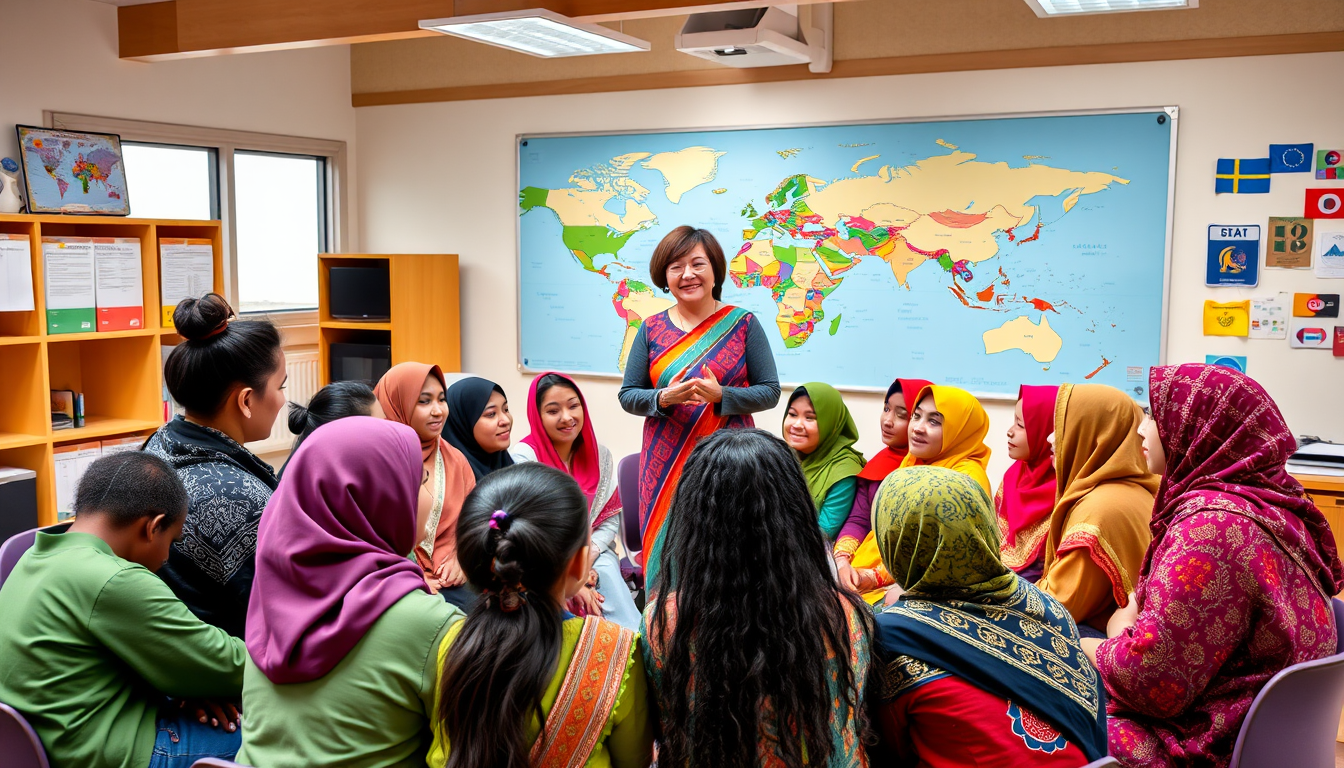
In an increasingly interconnected world, language skills are more essential than ever, especially within the realm of global education. Whether it's through formal classroom settings, online learning platforms, or immersive international experiences, language is the bridge that connects people from different cultures, disciplines, and ideologies. For students and educators alike, being multilingual opens doors to countless educational and professional opportunities. Here’s an in-depth look at why language skills are indispensable in global education today.
1. Expanding Access to Information and Knowledge
Language skills are a gateway to accessing diverse sources of information. Much of the world's knowledge is contained in languages like English, Mandarin, Spanish, Arabic, and French, among others. When students have proficiency in multiple languages, they’re able to:
- Access global literature, research papers, and academic resources in their original form, ensuring a more nuanced understanding.
- Engage with different perspectives on global issues, enhancing their critical thinking skills and broadening their worldview.
- Participate in international academic exchanges and collaborative research, where shared languages enable a free flow of ideas and insights.
For instance, a student studying environmental science in Germany who can read Mandarin may gain insights from Chinese research on renewable energy, allowing for a deeper and more comparative study of the field. This cross-linguistic access to knowledge is crucial in fields like science, politics, business, and health, where collaboration across borders can drive significant innovation.
2. Enhancing Cultural Sensitivity and Empathy
Learning a new language is also an exercise in cultural immersion. Language reflects a culture’s values, humor, history, and worldview. For students in a global education context, understanding a new language can lead to:
- Increased cultural empathy, as language learners become more sensitive to the norms and practices of the people who speak that language.
- A reduction in cultural biases, as students learn to appreciate different ways of thinking and interpreting the world.
- Greater adaptability in multicultural environments, making them more comfortable in diverse settings and better prepared for future global challenges.
For educators and students, this cultural understanding is invaluable. A teacher who speaks Spanish and English, for example, can better connect with students from Latin American backgrounds, helping create an inclusive learning environment. For students, having empathy for cultural nuances prepares them to thrive in globalized workplaces and communities.
3. Boosting Cognitive Abilities
Numerous studies have shown that bilingualism and multilingualism are associated with cognitive benefits. Language learning boosts memory, problem-solving skills, and even creativity. These benefits have far-reaching implications in an educational context:
- Bilingual and multilingual students often perform better academically as they can navigate complex information and multitask effectively.
- Cognitive flexibility from learning languages can help students adapt to different academic subjects more easily, as they’re accustomed to shifting between language structures and ways of thinking.
- Language skills can also improve focus, helping students to concentrate better in their studies and absorb material more efficiently.
These cognitive advantages support a student’s overall intellectual development, better preparing them for rigorous academic pursuits and equipping them with the skills to excel in diverse educational settings.
4. Strengthening Employment Opportunities
As the global economy becomes more interconnected, companies across all sectors increasingly seek employees who can navigate multicultural and multilingual environments. For students in global education programs, language skills translate to:
- A wider range of job opportunities in fields like diplomacy, international business, healthcare, and education.
- The ability to work in multiple regions, broadening their career prospects and making them more appealing to multinational organizations.
- An edge in fields like tourism, international law, and tech, where language skills can lead to career advancements and a competitive edge.
For instance, someone proficient in Arabic and English might find opportunities with international organizations like the United Nations or the World Bank, while a French-speaking engineer could work on projects in Africa, Canada, or Europe. These opportunities mean that multilingual students often have more robust career paths available to them.
5. Enabling More Effective International Collaboration
Global education often involves cross-border collaboration, where language is key to fostering mutual understanding and ensuring effective teamwork. This is true in research, development, and policy implementation across various fields, including science, technology, and social justice. Language skills enhance collaboration by:
- Reducing the likelihood of misunderstandings and misinterpretations, which can derail projects.
- Creating an environment of mutual respect where all participants feel valued and heard, even if they come from different backgrounds.
- Enabling better knowledge-sharing, as participants can directly engage with one another without needing a third-party translator.
For example, a team working on climate change policy with members from Japan, the United States, and Brazil will benefit from having multilingual participants who can mediate between languages and ensure all voices are heard. In such collaborative settings, language skills can make or break the success of international initiatives.
6. Promoting Peace and Understanding
Language can also be a powerful tool for promoting peace and bridging divides. In regions where multiple languages are spoken, fostering language learning within education systems can encourage:
- Dialogue between different communities, as language learning leads to a greater understanding of each other’s perspectives.
- A reduction in stereotypes, helping to prevent conflicts fueled by misunderstandings or cultural biases.
- Development of diplomatic skills, as multilingual students become equipped to navigate cultural differences and mediate disagreements.
Programs that teach students multiple languages in conflict-prone areas have often reported increased inter-community cooperation and reduced tensions. In this way, language learning serves not only as an educational benefit but as a step toward a more peaceful, understanding world.
7. Encouraging Lifelong Learning and Adaptability
Language learning is inherently a lifelong pursuit. Even for native speakers, language evolves, and continuous learning is required to stay up-to-date. Global education emphasizes adaptability, and language skills encourage this adaptability by:
- Keeping the mind flexible, as learning languages involves constant practice and adaptation.
- Opening up continuous learning opportunities, as multilingual students can continue to grow academically by engaging with educational resources from around the world.
- Encouraging curiosity and a willingness to engage with new ideas, which are essential traits in today’s rapidly changing world.
Conclusion
Language skills have profound importance in global education, offering cognitive, cultural, and practical benefits that prepare students for a world where interconnectedness is the norm. As students, educators, and policymakers recognize the value of language proficiency, the emphasis on multilingualism will continue to grow, ultimately leading to a more educated, compassionate, and globally competent society. Whether for academic success, cultural understanding, or career readiness, language skills remain a cornerstone of education in our globalized world.




